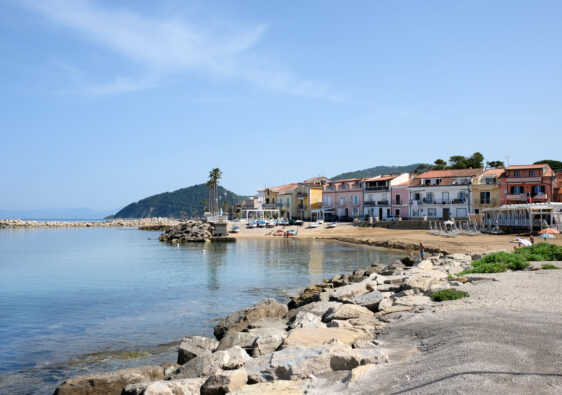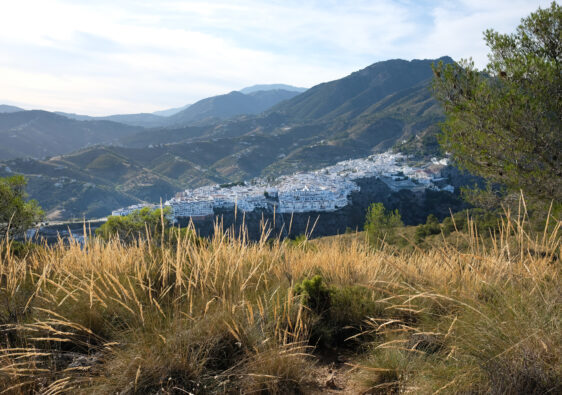IN HINDI, SAMBHALI MEANS “STRENGTHENING OF THE DEPRIVED.“
“Every day I get up, I overthink everything, and this place scratches at my old wounds, but without it, many children and women wouldn’t be able to find the help they need, and it saved me from my brother’s destination,” says Govind.
Govind glided towards me: he was tall and handsome, clad in an Indian pashmina shawl, a French beret and shiny red patent shoes. He had a voice that could easily deliver a high-end chocolate brand on the radio; it oozed elegance and luxury.
“Go rest, darling”, he said, stating that we would reunite in his office the following morning. As he strode by, he added, “Dinner is served upstairs. Any time after 5 -someone will show you the way.”
I recently stayed at the Sambhali Trust in Jodhpur, Rajasthan. Govind Singh Rathore is the founder and head of the non-profit, charitable organisation run by women. He created the Trust after witnessing his mother endure violent abuse by his father. Unfortunately, his brother was severely affected by what happened to his mother and eventually took his own life following a battle with depression. This was certainly not my first trip overseas, but it was my first visit to India and my first insight into what it’s like to be a volunteer. I was invited to photograph the teachers, volunteers and women who attended the Empowerment centres created by Govind.
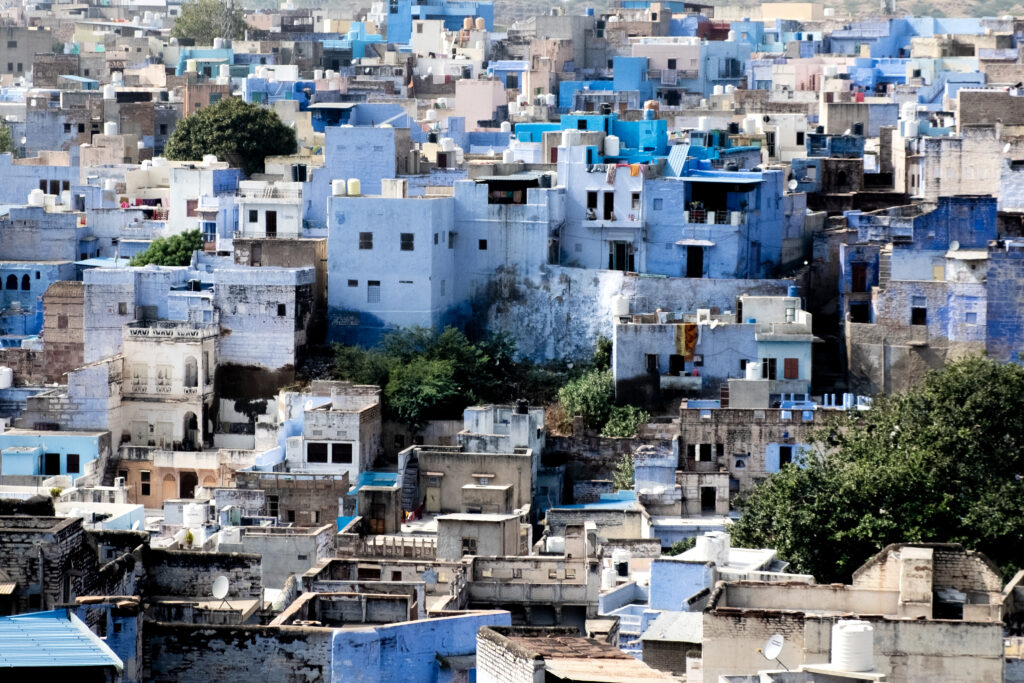
MY ARRIVAL:
After almost 13 hours of travelling and 6 hours of waiting for my suitcase to arrive at Delhi airport, I finally reached Jodhpur, tired, parched and ready for a long hot bath.
The Durag Niwas guest house (where volunteers and guests stay) is a bright blue building wrapped in greenery. After hours of travelling, it was a sight for sore eyes. Govind and the staff welcomed me with a garland of fresh flowers. Someone took my suitcase, another handed me a drink, and someone else asked if I was hungry.
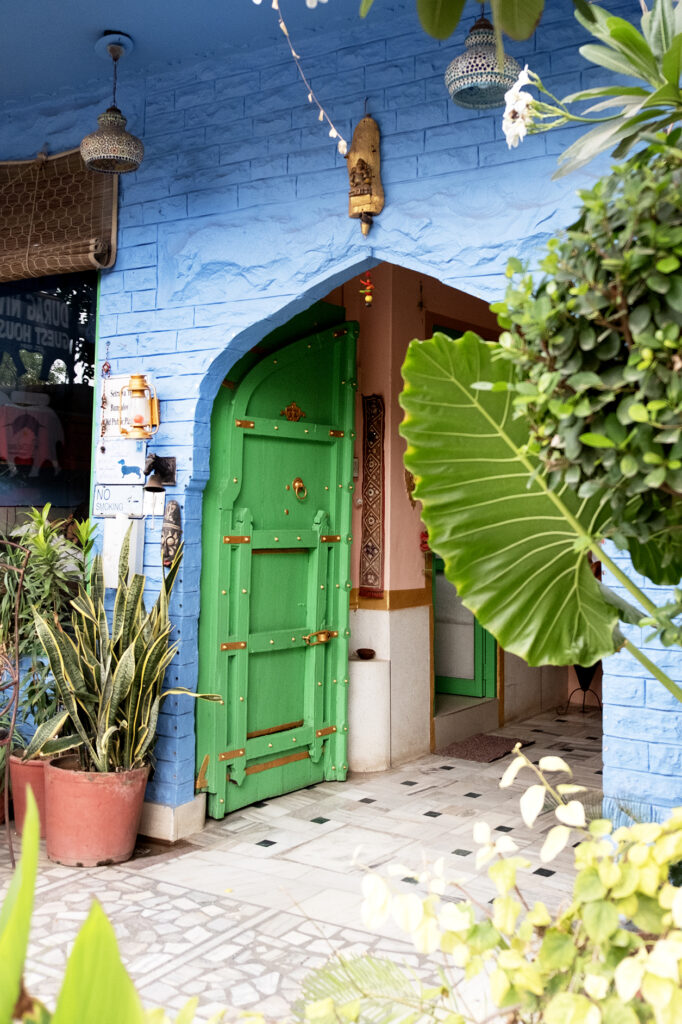
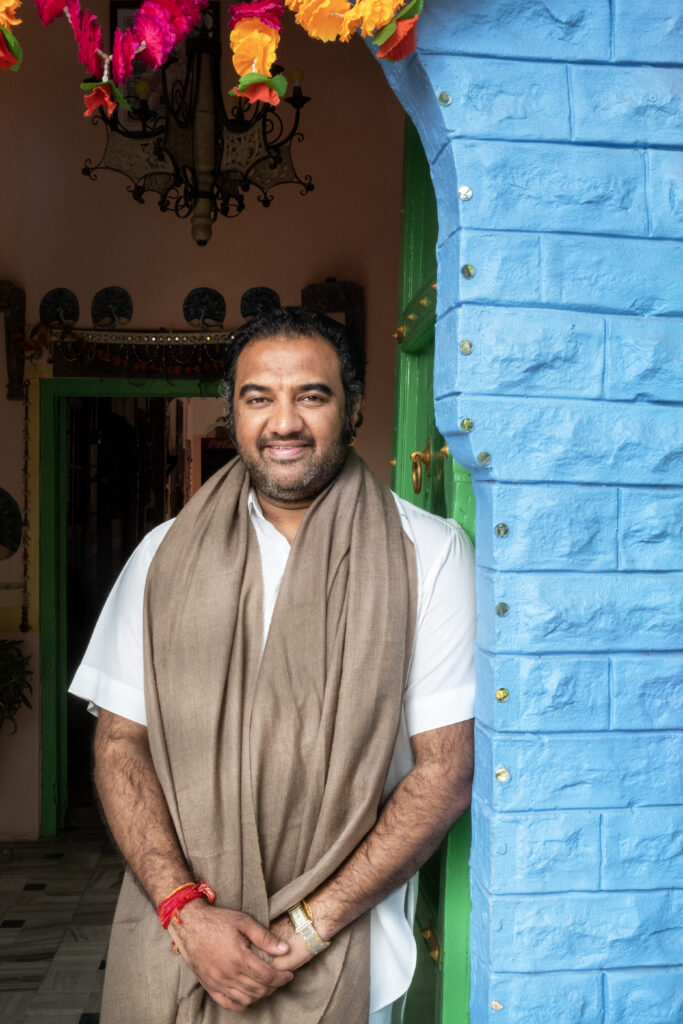
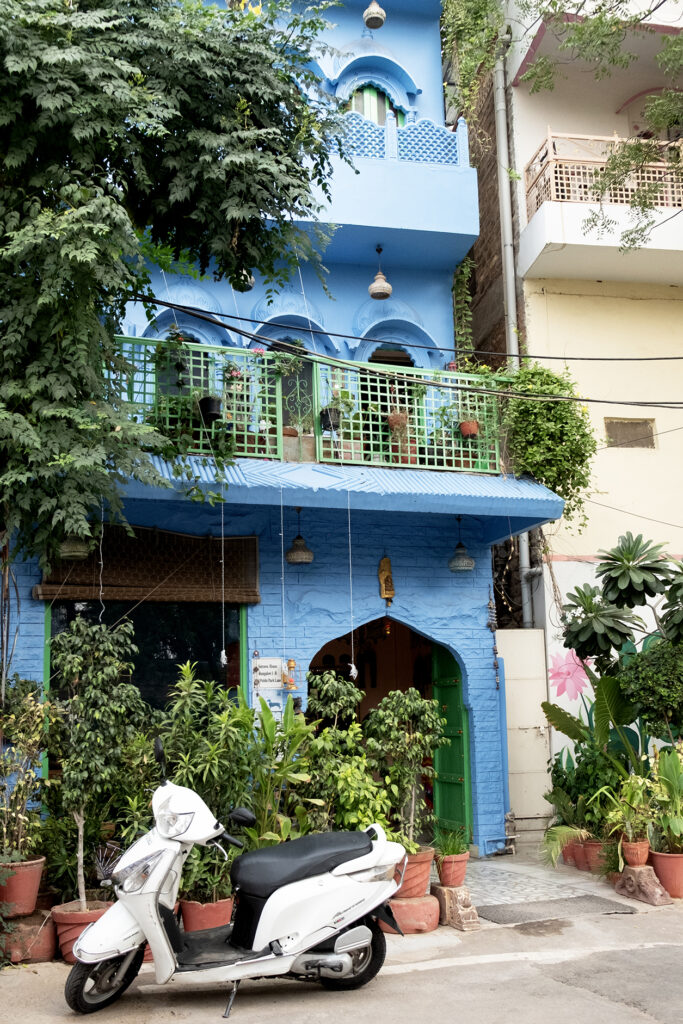
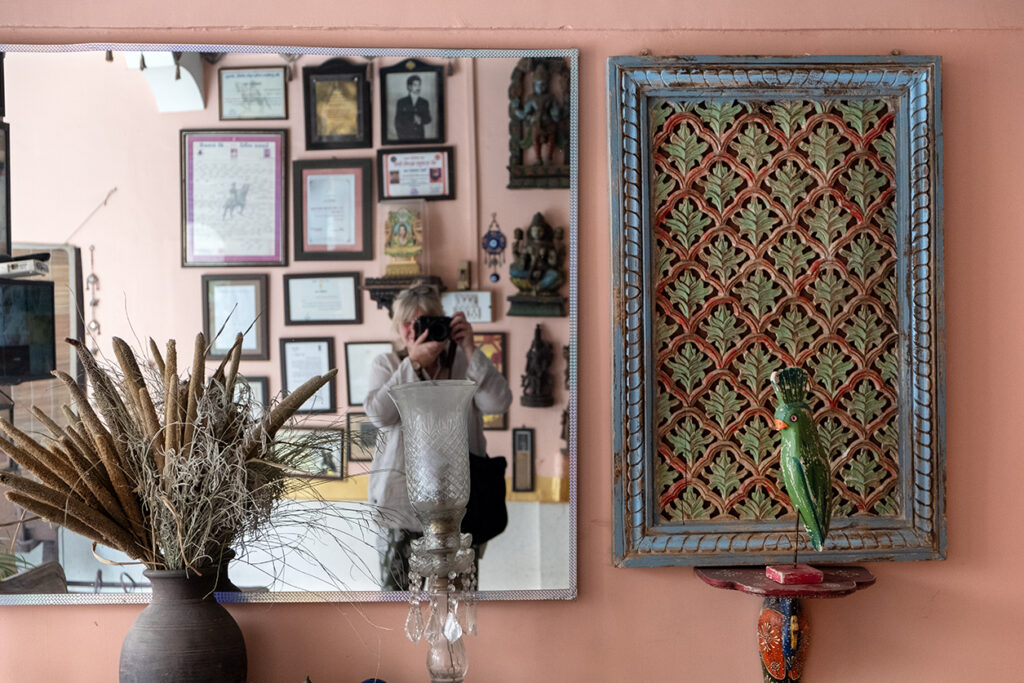
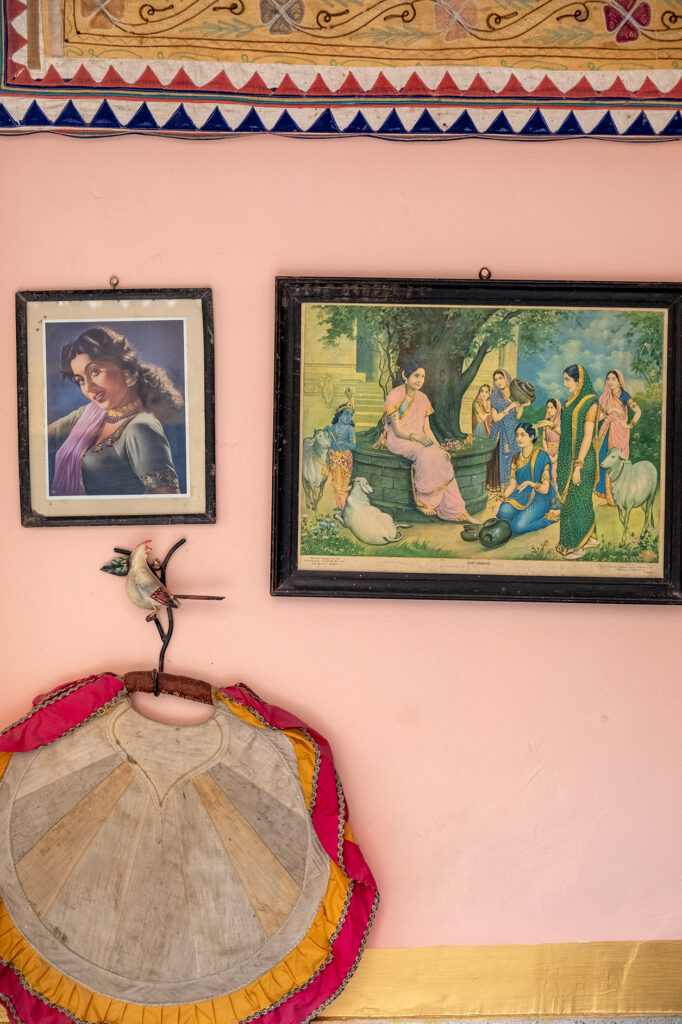
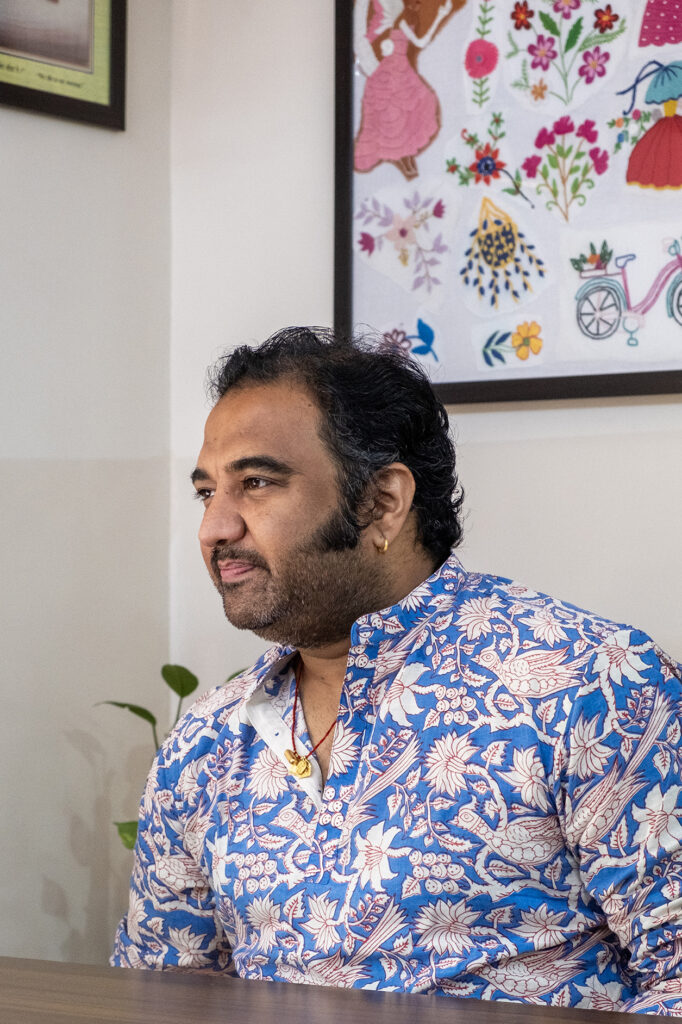
I took his advice and headed for my room.
There was no bath, but that was okay. There was a shower with instant hot water, clean towels, a balcony overlooking the front of the guest house, and a huge bed, which I collapsed on after my shower and fell swiftly asleep.
“Ma’am, ma’am, it’s late. Come have dinner”, I heard from outside the door. I woke quickly, my hair a rumpled mess; I reached for a brush and shouted, “Coming.” I didn’t need directions to the dining room; I just followed the wonderful aroma of curry.
Govind sought me out later to join him for a glass of rum in his apartment. He and his family had a whole guest house floor, which had been converted into living quarters. We chatted over glasses of rum – maybe four altogether – swapping stories as we drank. His experience of watching his mother’s suffering was harrowing. Not only had she been the victim of domestic abuse, but she had also lost a great deal of respect within the community following the death of her husband. Having grown up alongside many female servants who could not read or write, Govind realised the transformative power of education. This realization inspired him to take action and improve the lives of women in his area. Having helped his maid and her children learn to read and write, staff began bringing more girls to him, eighteen, within a day or two. Six months later, with a great deal of planning and multiple glasses of rum, the Sambhali Trust was born.
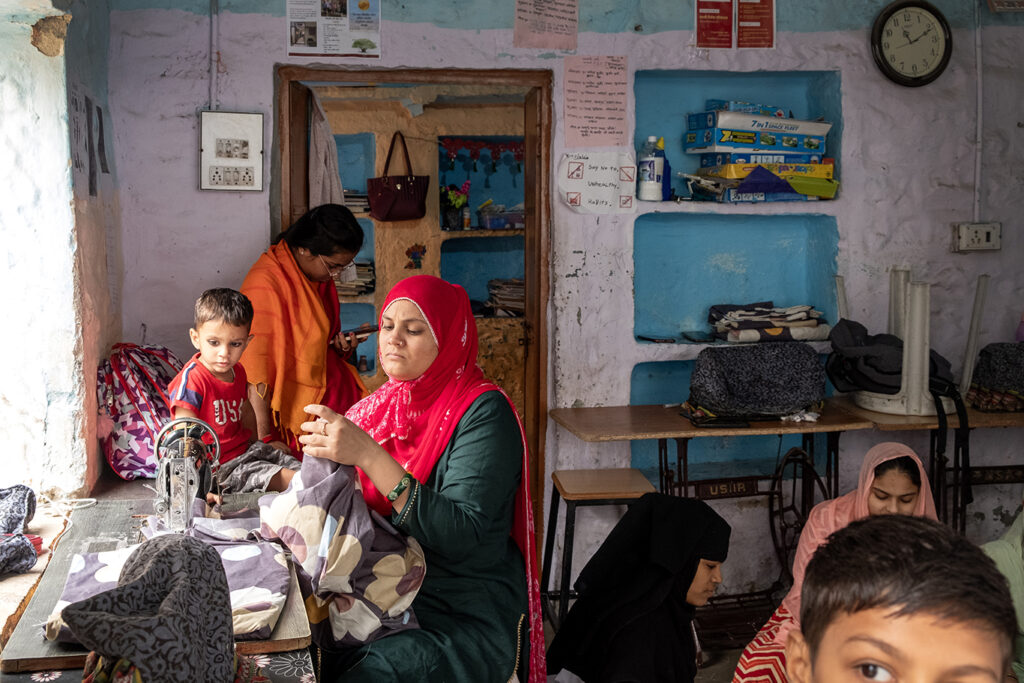
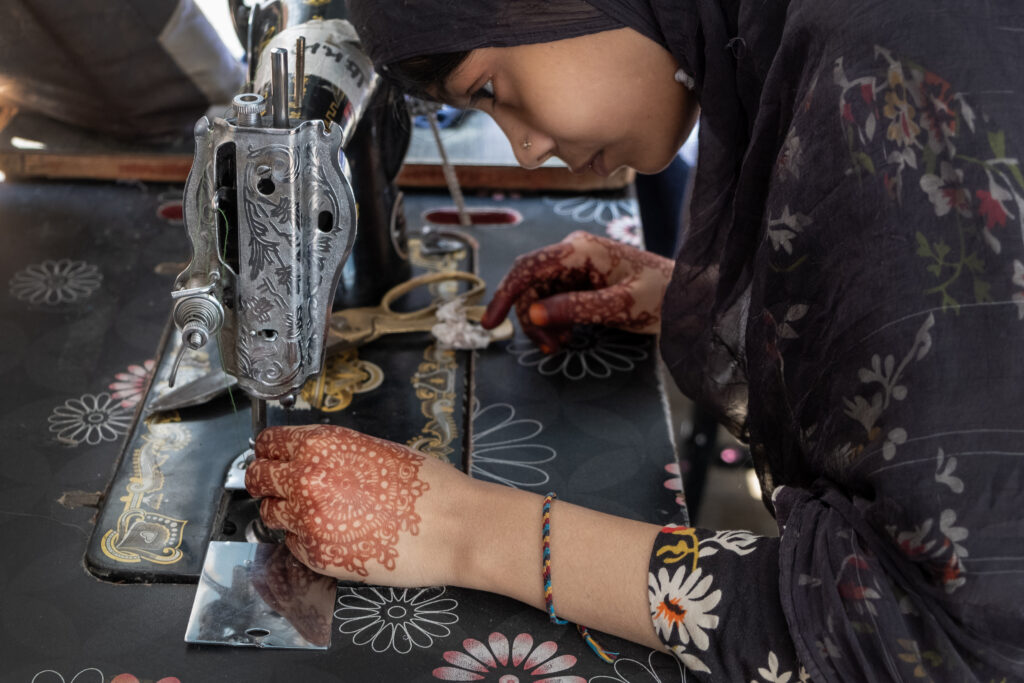
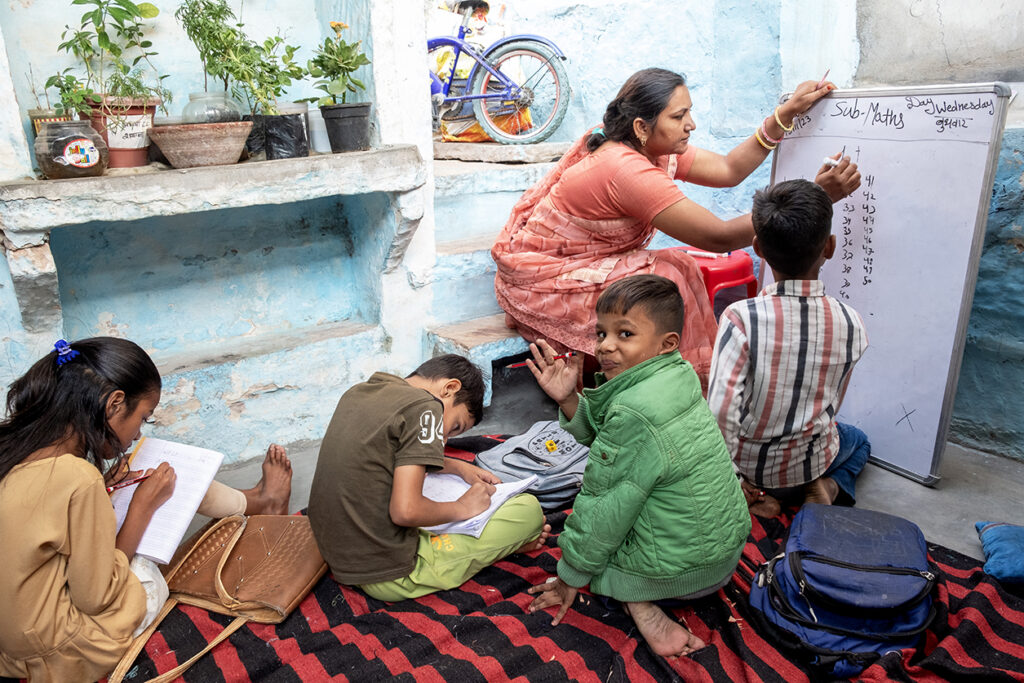
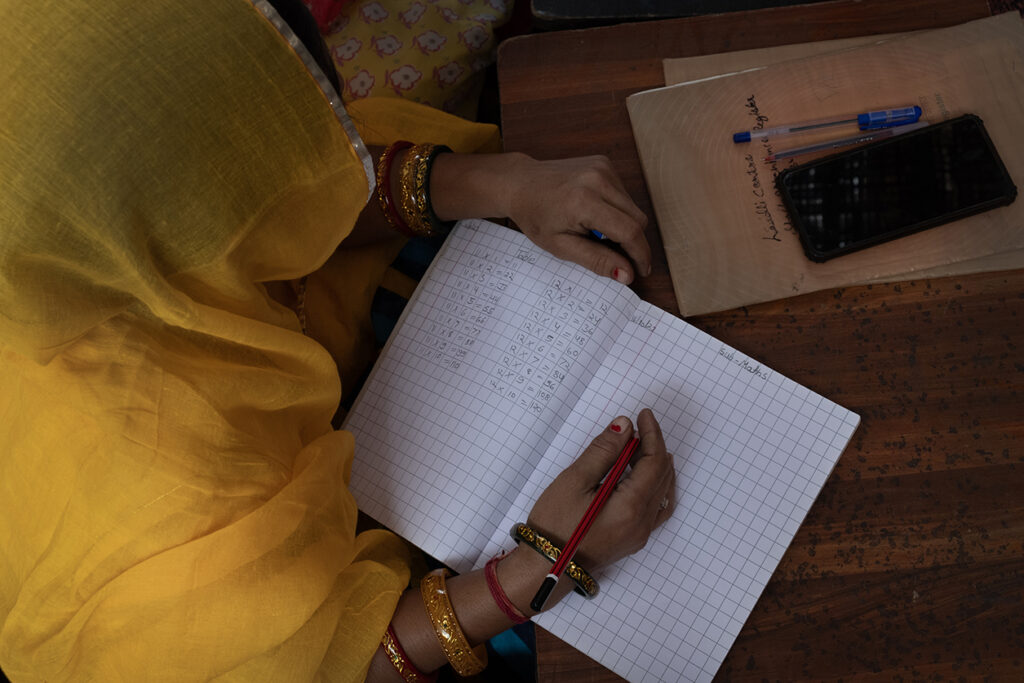
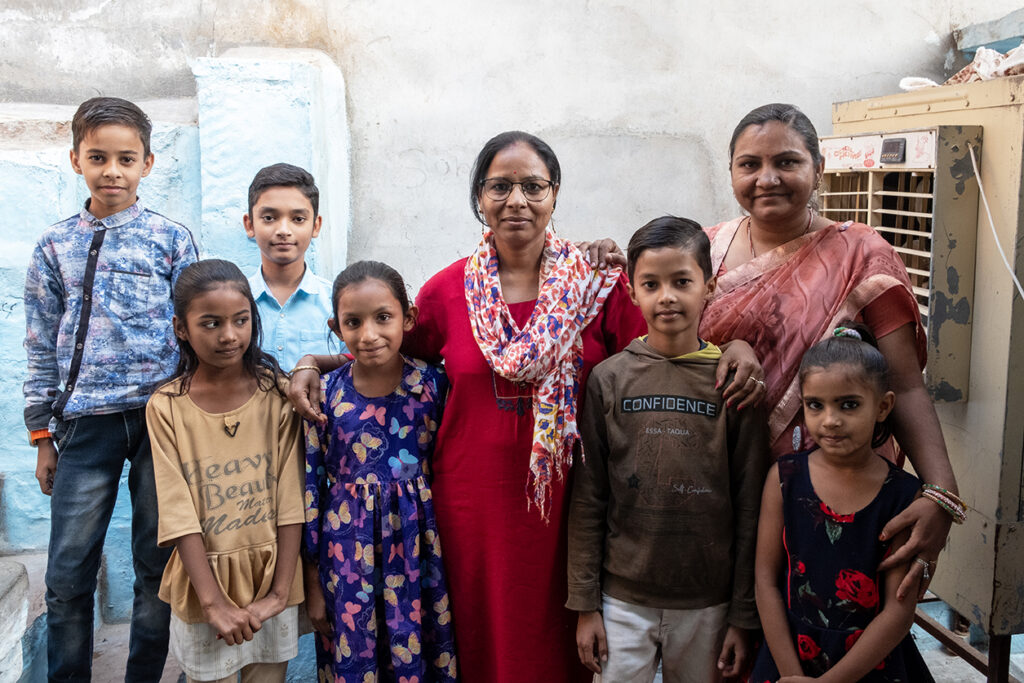
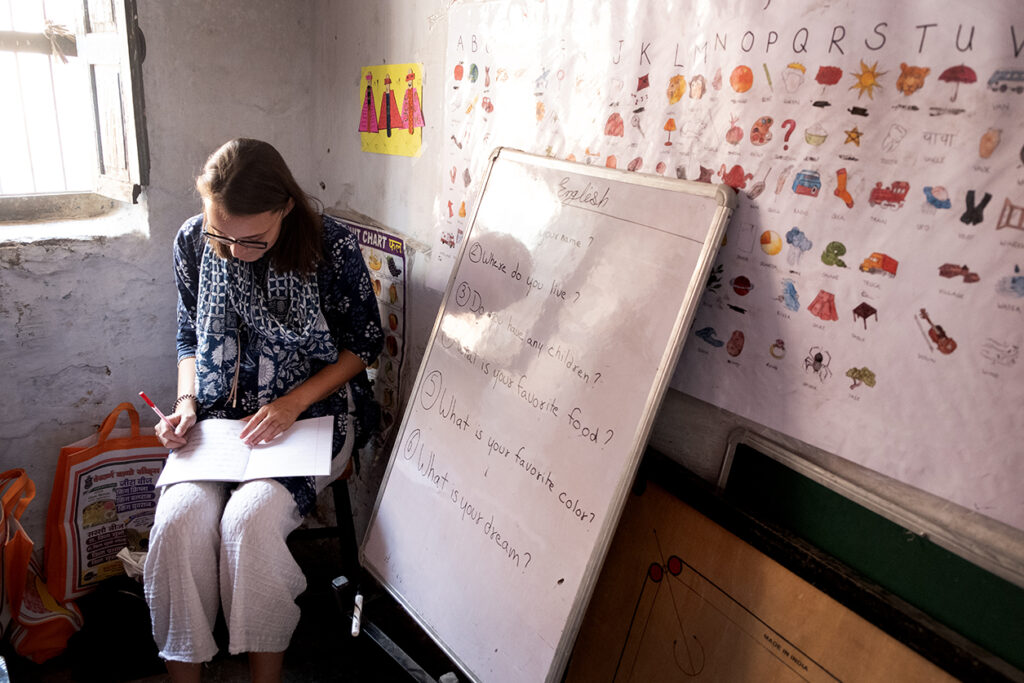
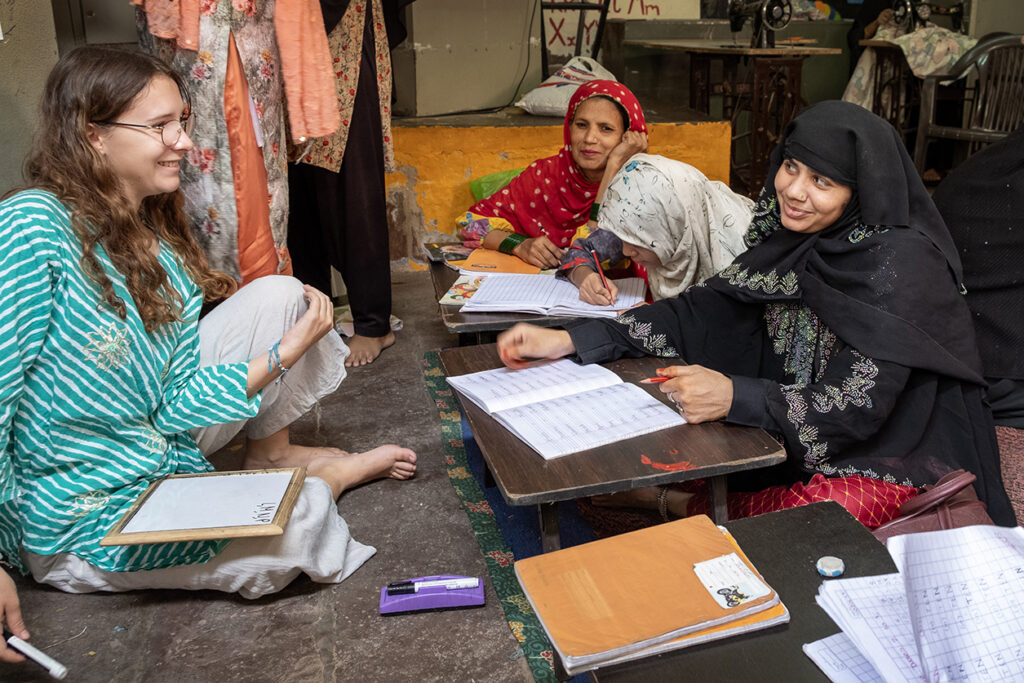
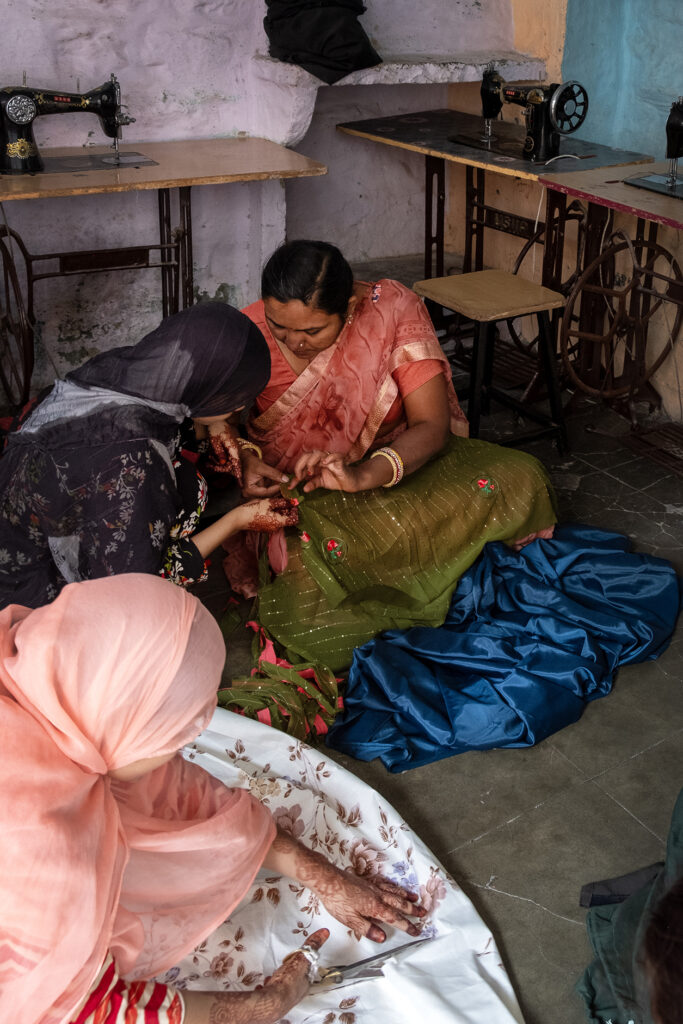
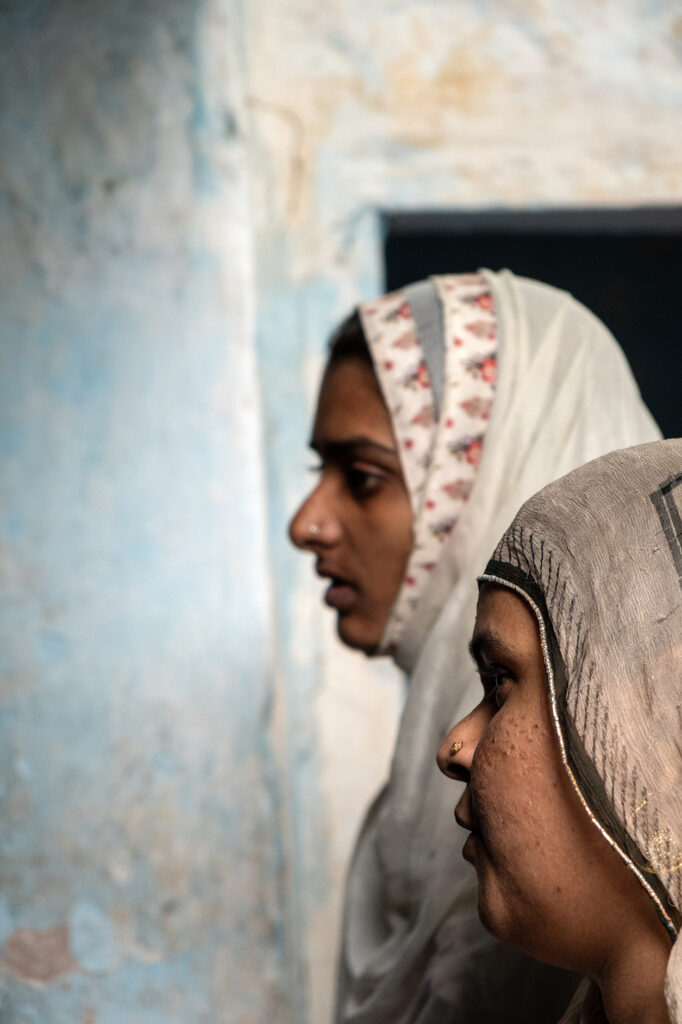
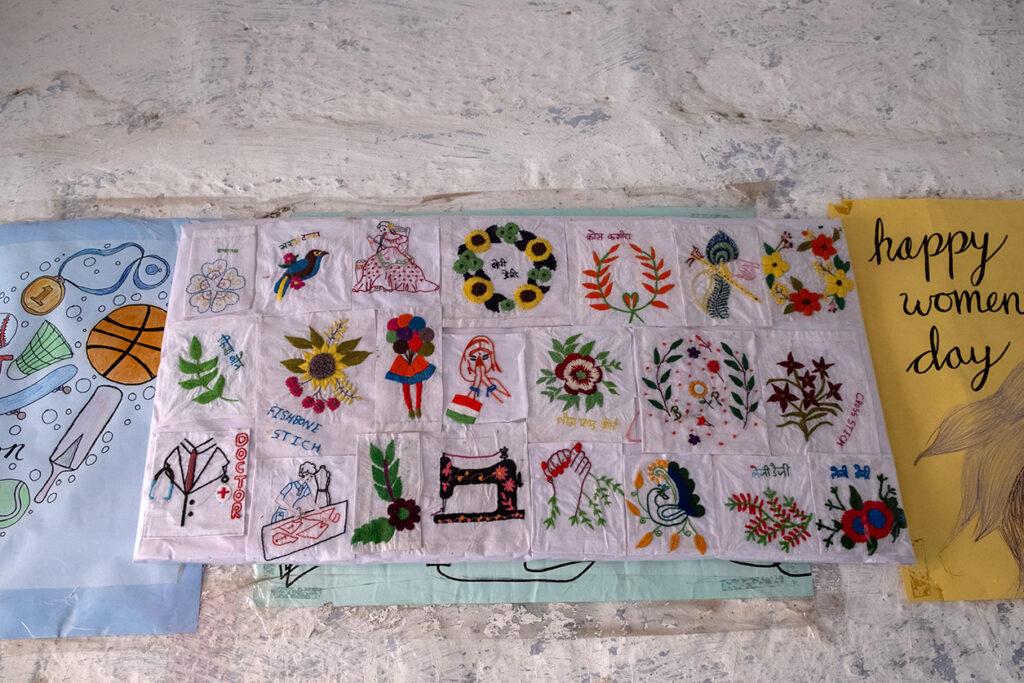
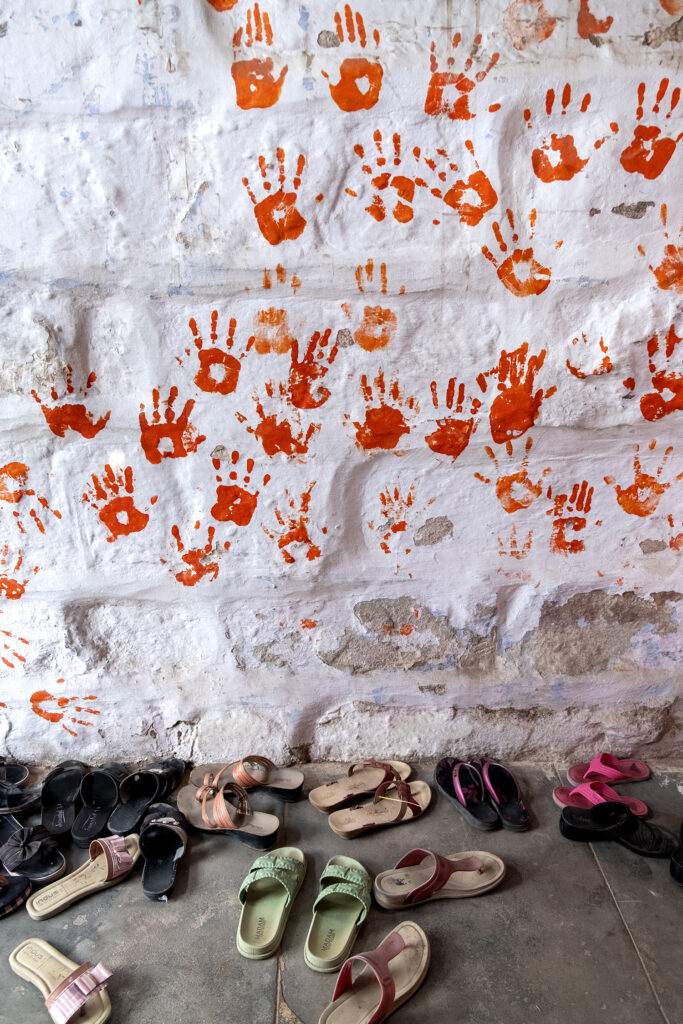
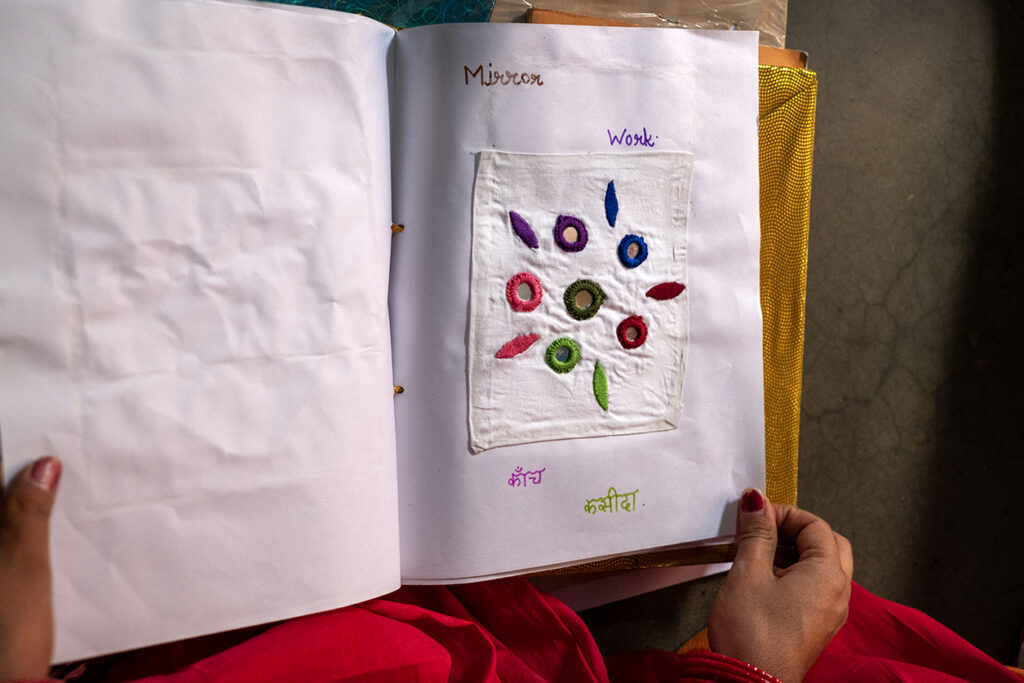
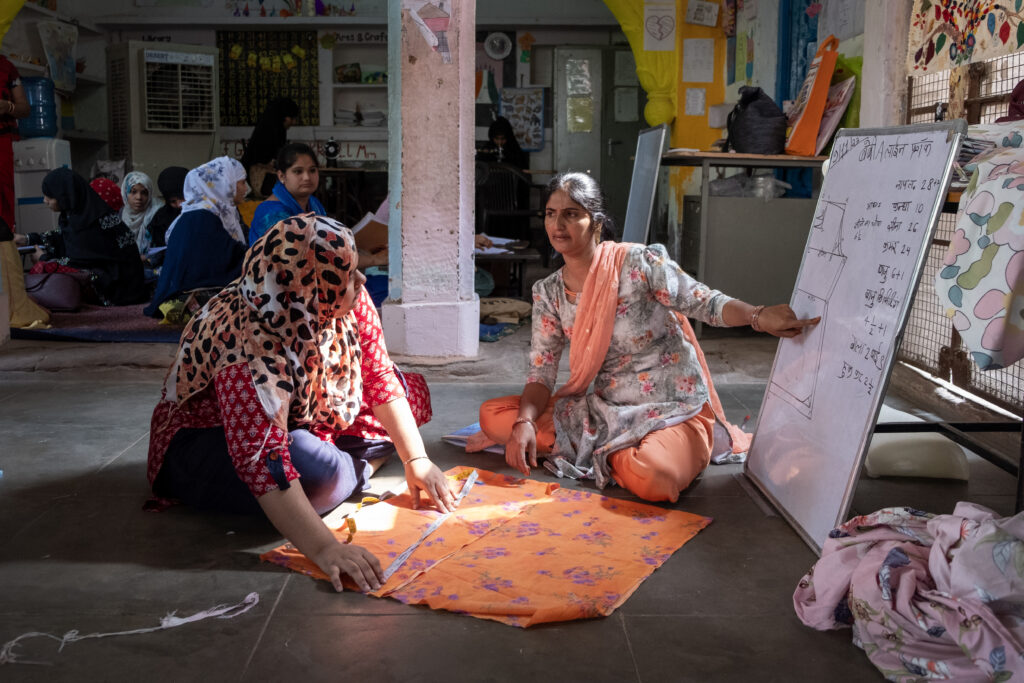
SENSORY OVERLOAD:
I woke early to the sun’s rays streaming through the gap in the curtains, casting a warm glow through the room. Well, sort of. What really woke me was the cacophony of 9 or 10 stray dogs barking, two cows mooing, three car horns blowing and a partridge in a pear tree! The noise was overwhelming, and I could feel a headache creeping in; the glowing sun was just a bonus. I opened the doors to the outside to discover that it was already warm. The air was thick with the lingering aroma of last night’s curry, and I leaned over the balcony, hoping I would feel better soon.
After the morning briefing with Govind, the teachers, volunteers, and I jumped into our respective minibuses and set off to the Empowerment Centres. These centres represent the Trust’s core focus; each is designed to give women from deprived Hindu and Muslim areas good primary education and vocational training in sewing and embroidery. When we reached the end of our quiet, dusty road, the noise doubled instantly; it was pure chaos. The two French volunteer girls laughed when they realised this was my first traffic experience in India, a chaotic symphony of honking horns and swerving vehicles.
Before I left, I’d been warned that travelling in India would likely cause sensory overload; they weren’t joking. I had already woken to the smell of aromatic spices and consumed a late-night curry and one for breakfast, and now my ears and eyes were working overtime. I gripped the door handle and hoped for the best as we sped through the streets towards our destination.
When I was brave enough to look up, I couldn’t see any traffic rules being observed. Indicators weren’t used, and whole families rode on two wheels. One child perched on the back of a bike had six chickens in a basket upon her knee. Cows sauntered across the road, and vehicles swerved to avoid them. It was an unruly symphony of movement, a thrilling adventure in every moment. Considering how diligently they were ignored, I’m convinced that the traffic lights and zebra crossings were only for decorative purposes.
When the traffic did stop, courageous people approached the van, hoping we’d give them money before the congestion cleared. However, the chaos seemed controlled. I was the only one in a panic; the driver seemed calm, texting his friends and honking at every other driver he could see. His calm demeanour amid the honking mess reassured me that we were in safe hands.
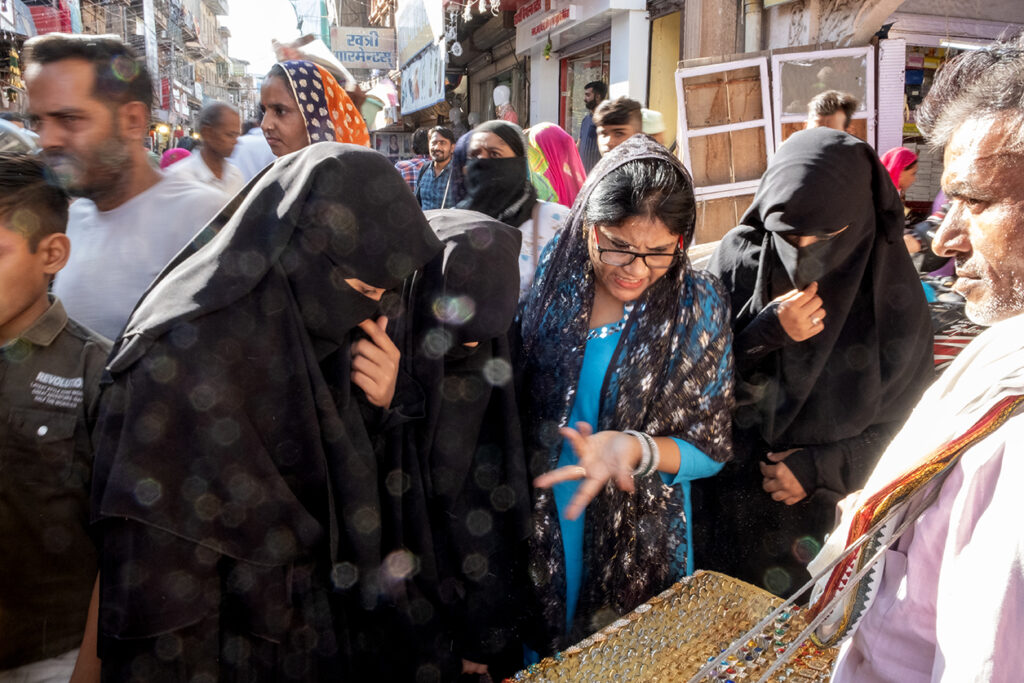
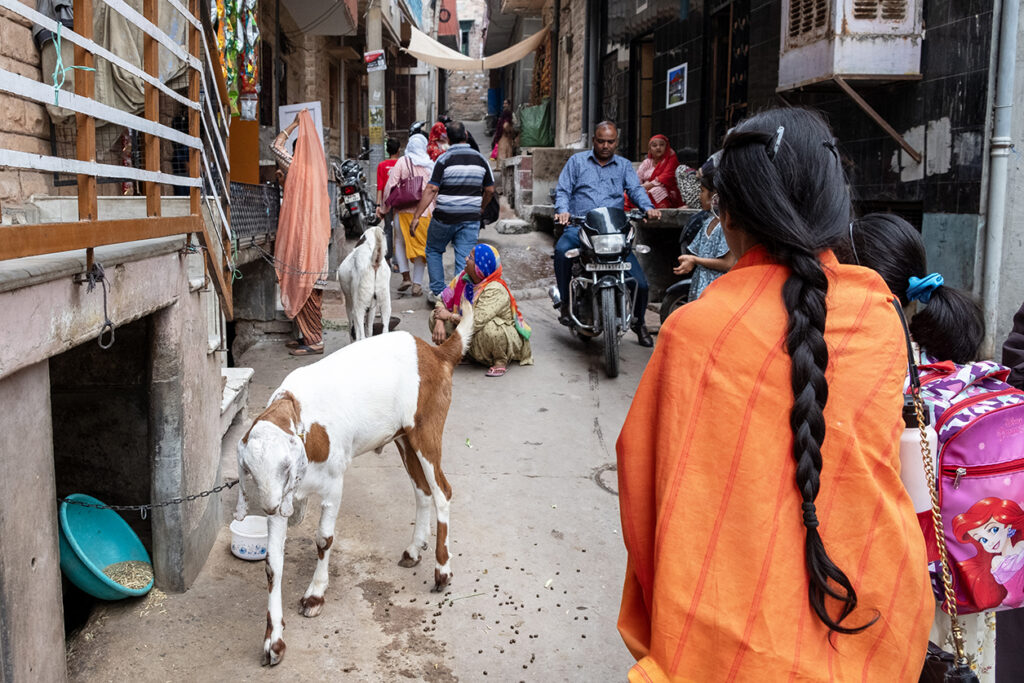
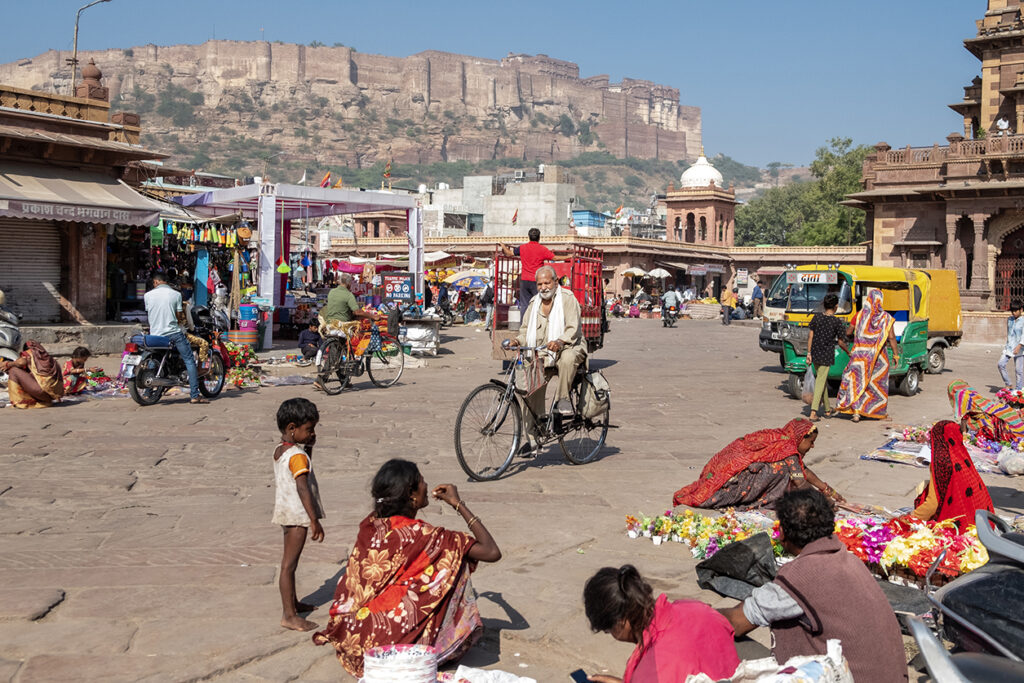
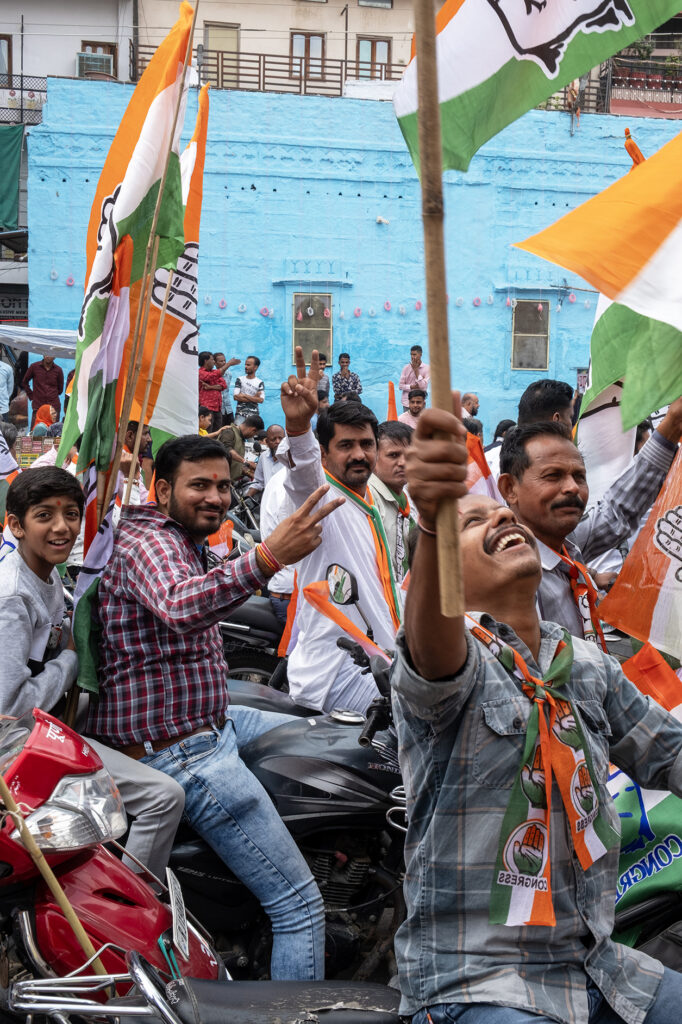
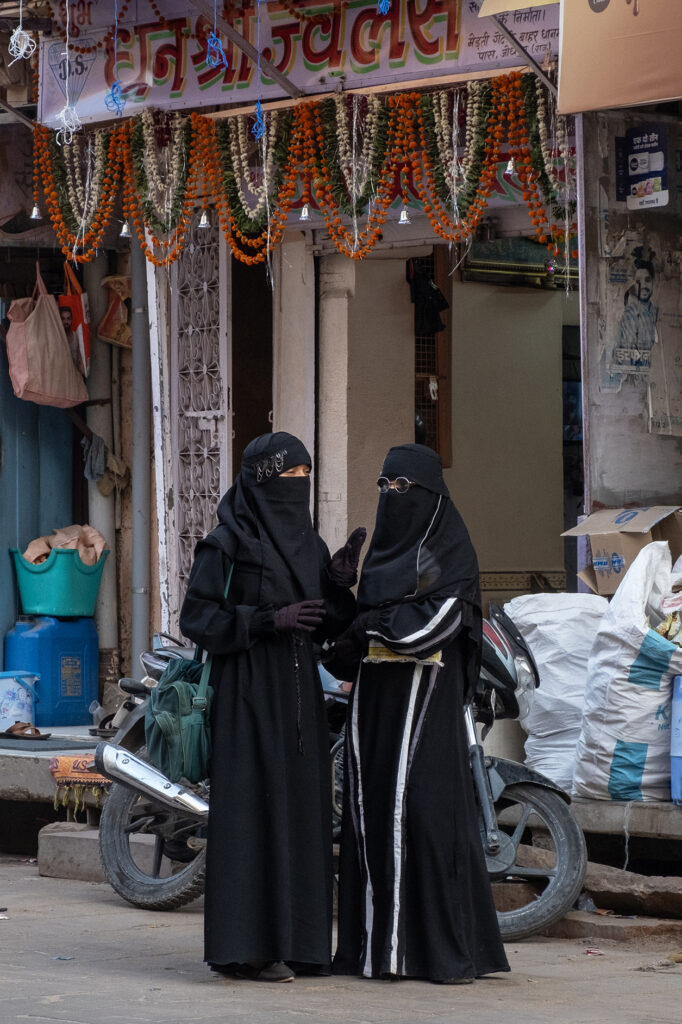
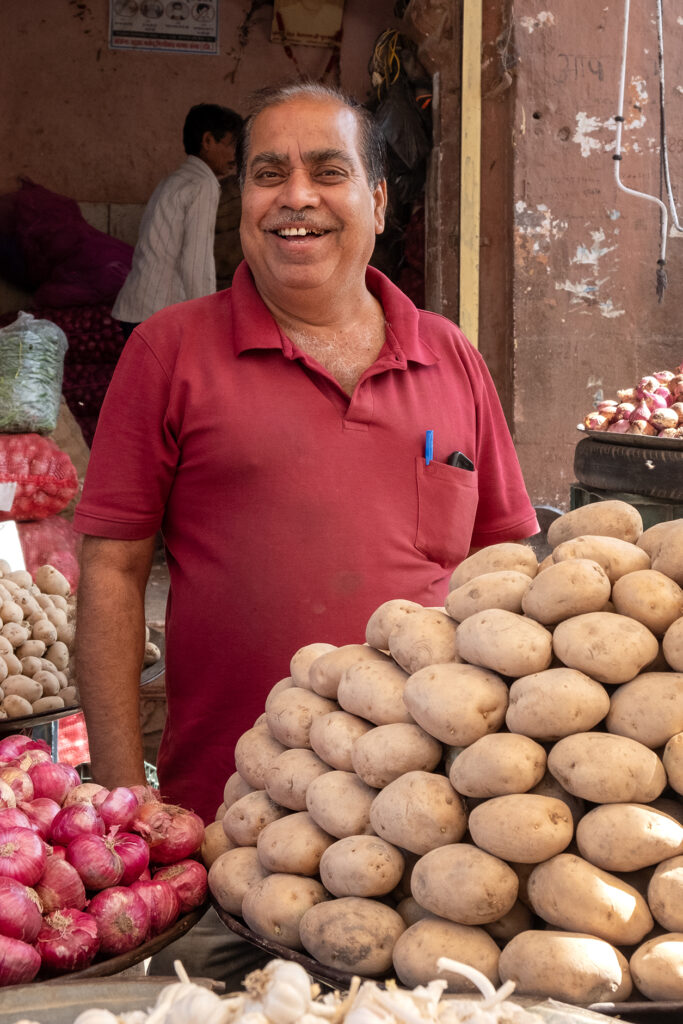
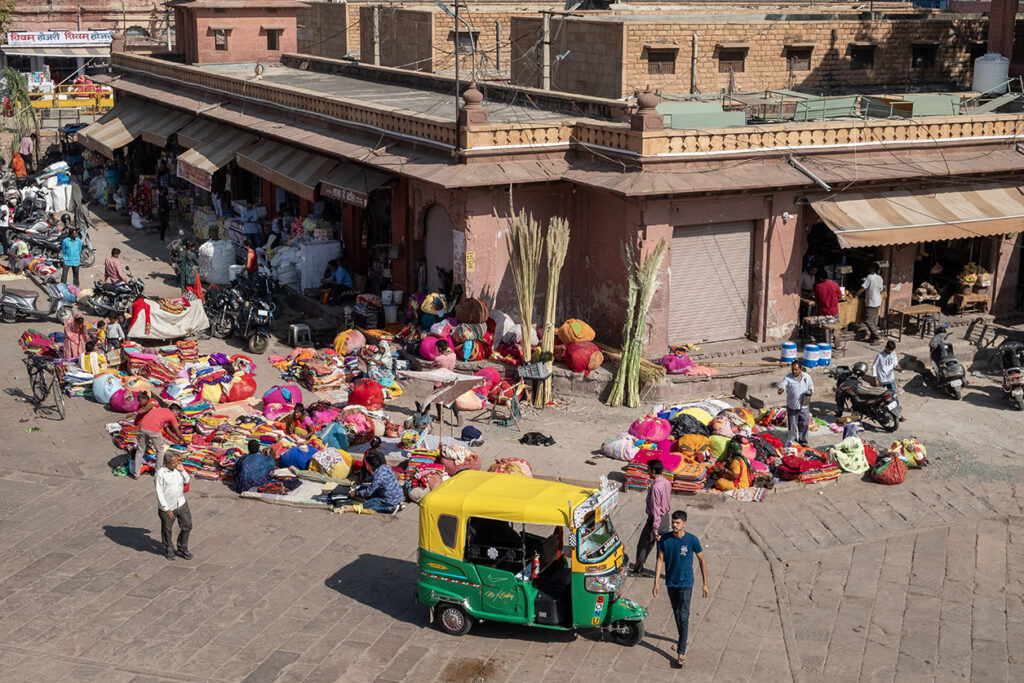
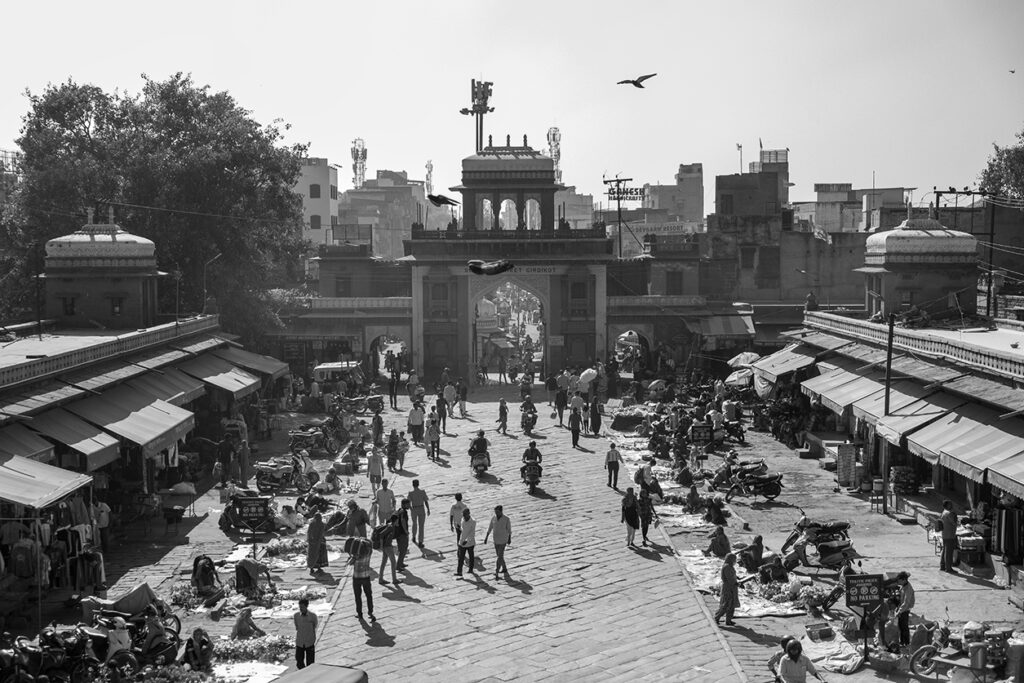
AYESHA:
We finally arrived at the centre. Smiling teachers greeted me, all eager to show me around and introduce me to their students. I observed for a while and chatted with some women who could speak a little English before I took my camera out. As the week went on, I gained their confidence, listened to their stories and documented as much as possible. I was told Ayesha – one of the women who attended the centre – was quiet and reserved, but I met a bubbly, friendly young woman keen to learn. Aeysha told me she had married three years ago, adding with a smile that their union had been ‘for love.’ But her smile dwindled as she shared news of her husband’s passing; he had been murdered recently, stabbed to death on the street not too far from the centre. She showed me his picture on her phone.
“Coming here makes my mind not upset.”
She is now learning new skills that will help her secure future employment. I spoke to many women who told me their stories about why they attended the centre.
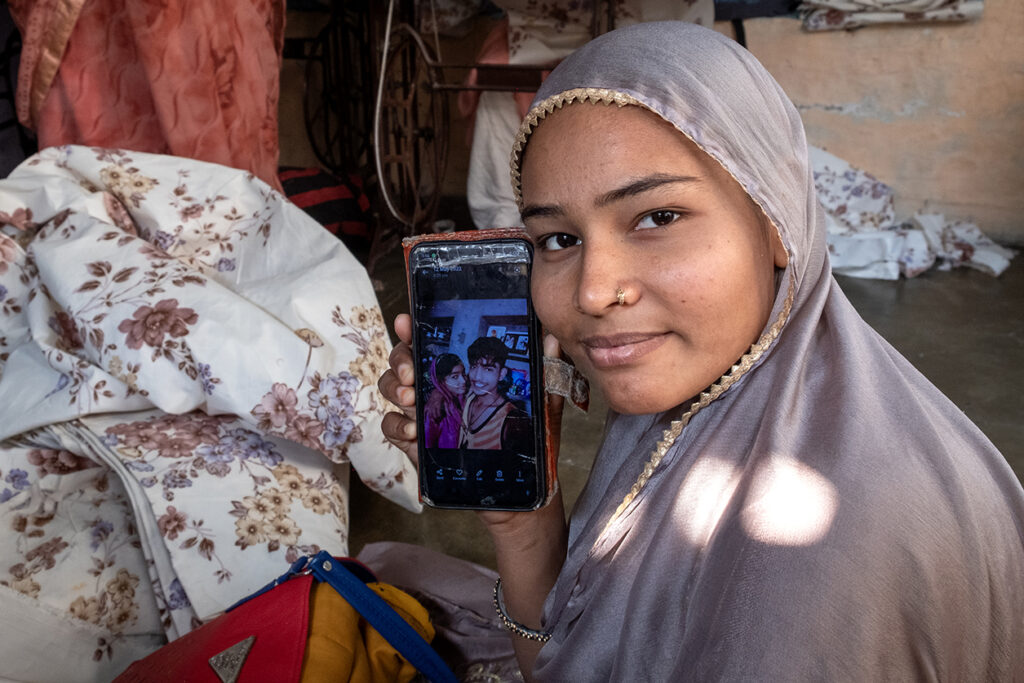
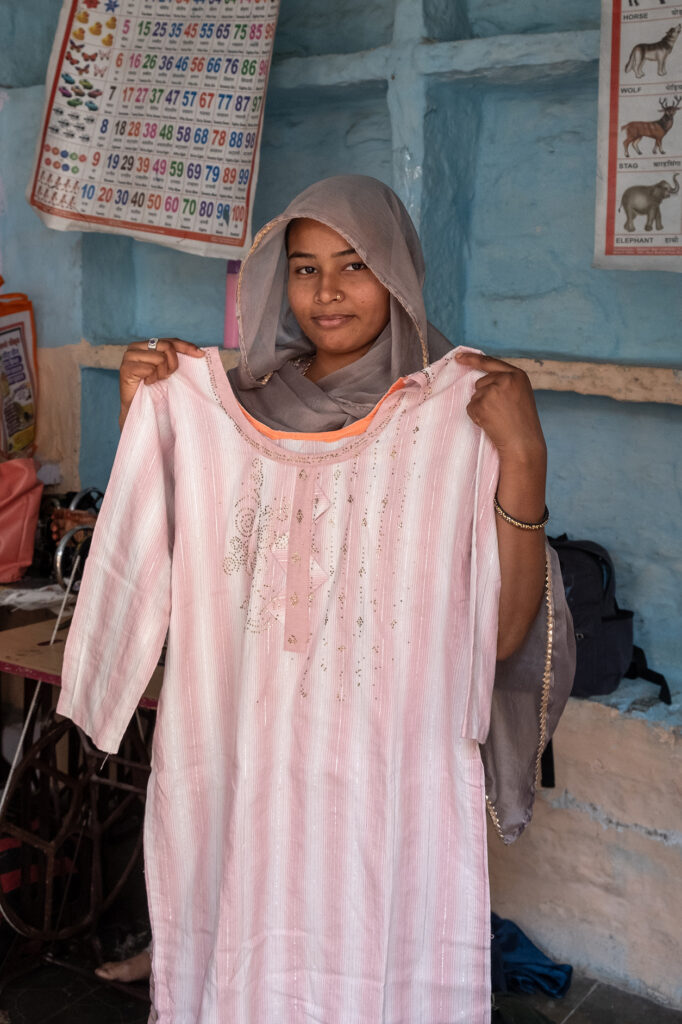
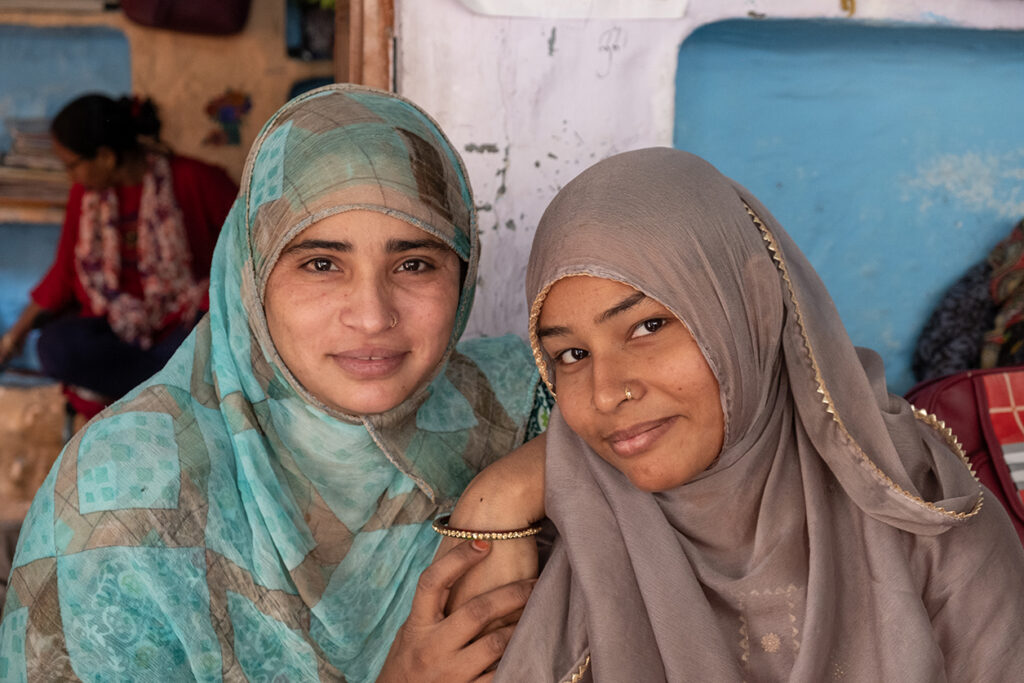
Each afternoon I braved the Tuk-Tuk into Ghanta Ghar, also known as the Sardar Market.
“How will I know I am there?” I asked Sita at reception.
“Don’t worry”, he replied. “He will take you, and you will see clock tower.”
He wasn’t wrong; the ancient tower sat proudly in the bustling market.
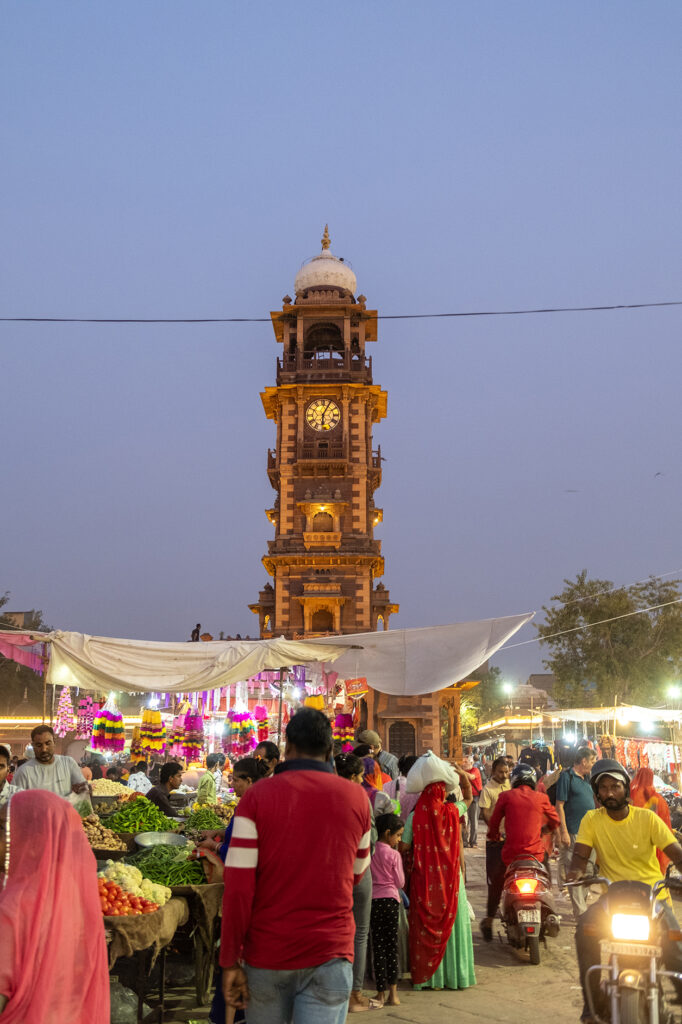
It was jam-packed. Groups of men drank chai from small clay cups on every corner, and women in vibrant saris wandered through narrow alleys crammed with people browsing lac bangles and other sparkling jewels. It’s the oldest market in Jodhpur, famous for selling some of the nation’s finest spices. My nose was on fire as I pottered in and out of the shops, letting the aromas creep slowly into my nostrils. As the days progressed, I climbed high and discovered mighty forts. I wandered down winding lanes of blue-painted houses and stumbled across Tooji Ka Jhalra Step Well, a remarkable architectural wonder that has stood the test of time. But mainly, I discovered the people. Some offered free tours—but don’t fall for it. Others enticed me into their shops with cups of heavenly-scented masala chai (which worked on me) and requests for selfies. Back at the guest house, I shared my food with people worldwide in the evenings. We sat outside, the locals wrapped in blankets while the rest basked in the day’s heat. We all sipped rum as we put the world to rights and listened to the fireworks for the upcoming Diwali celebrations in the days to follow.
A NEW LOVE:
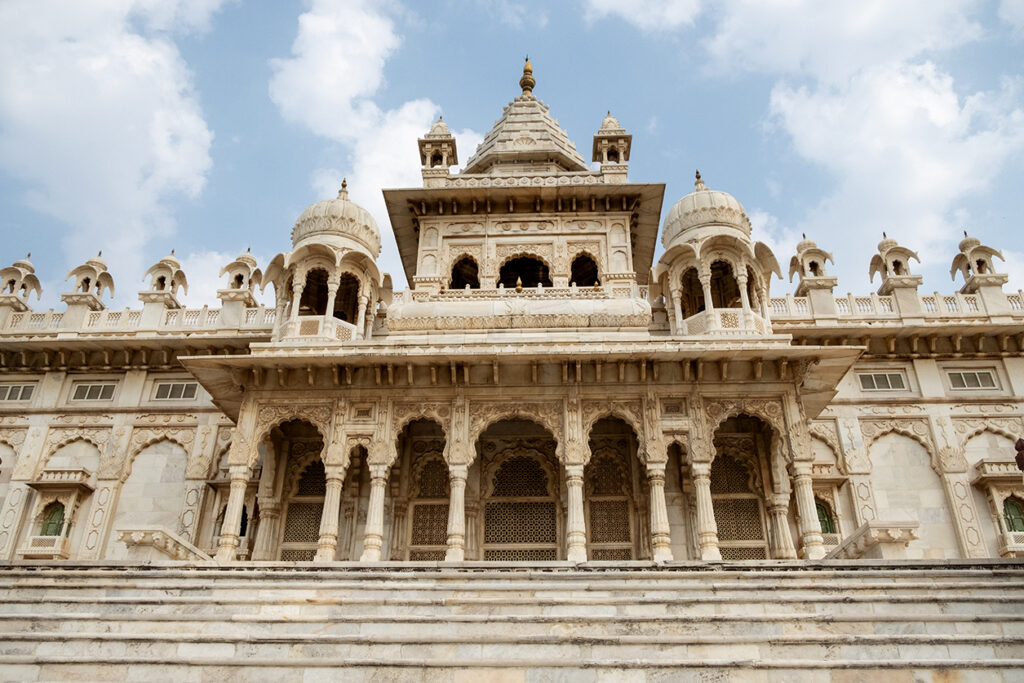
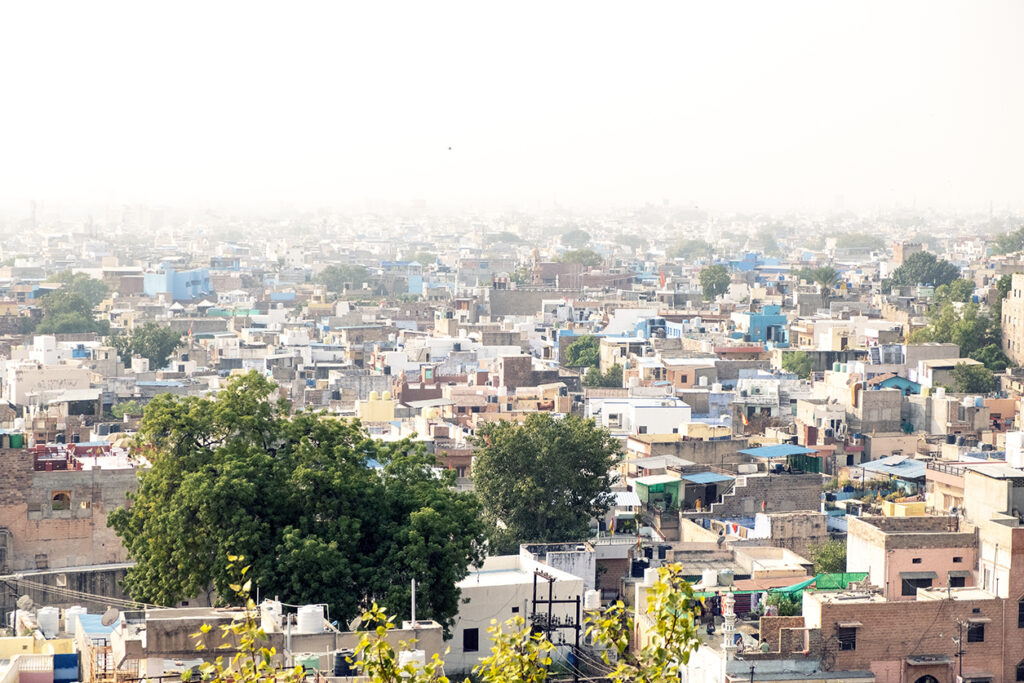
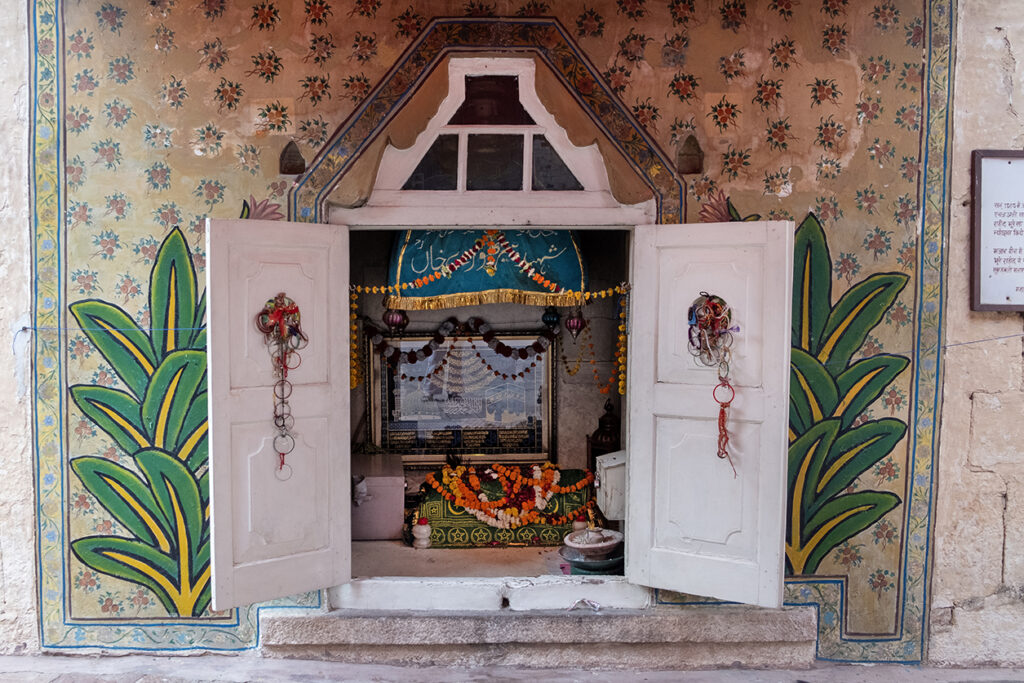
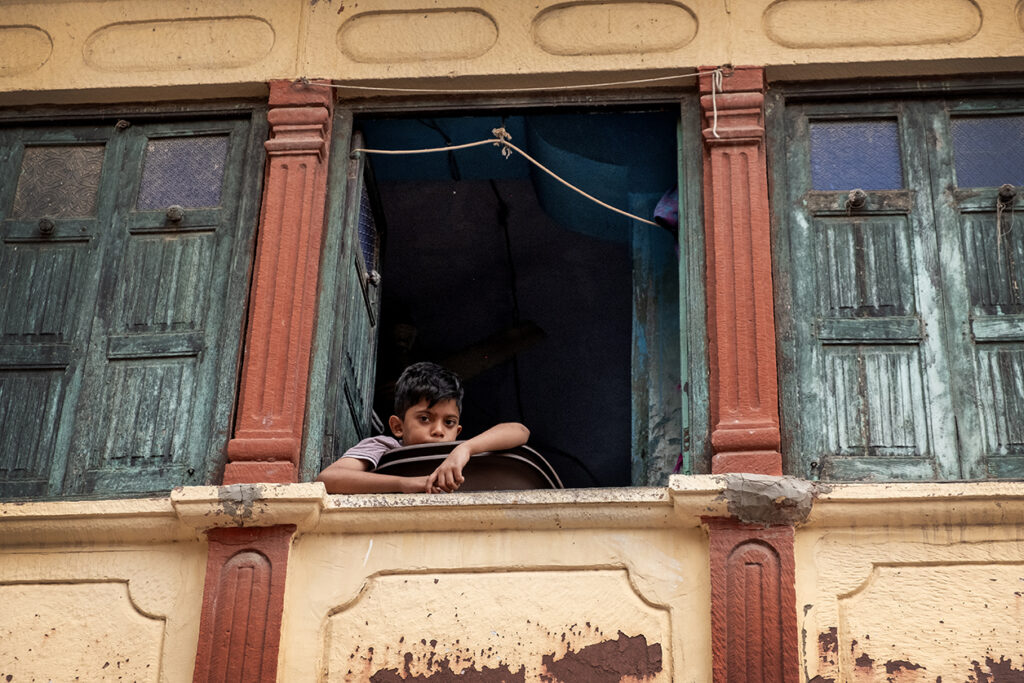
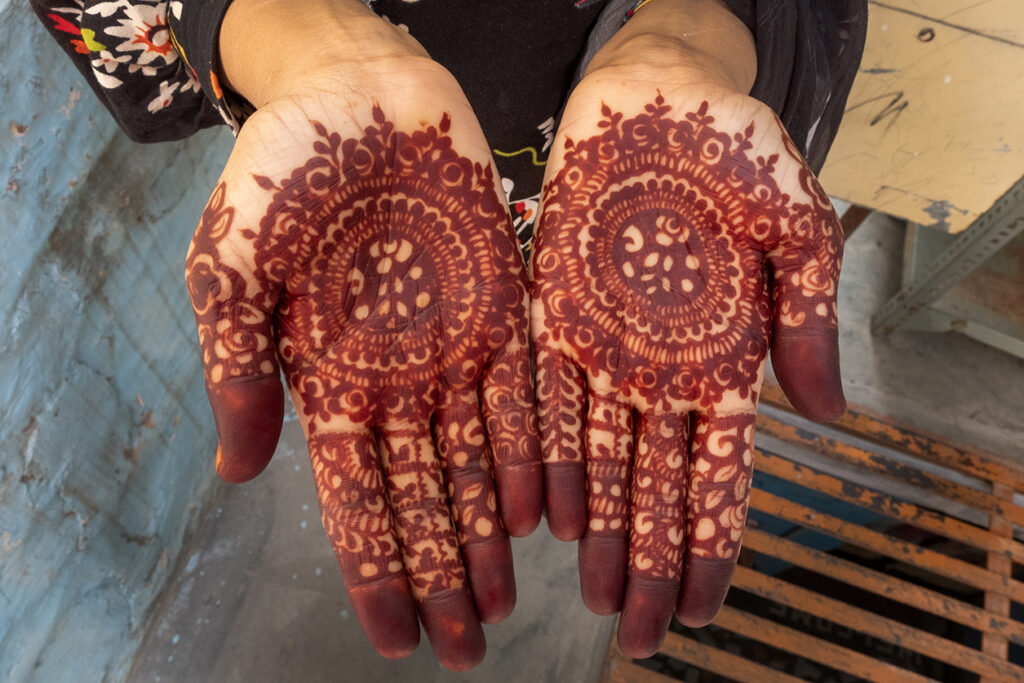
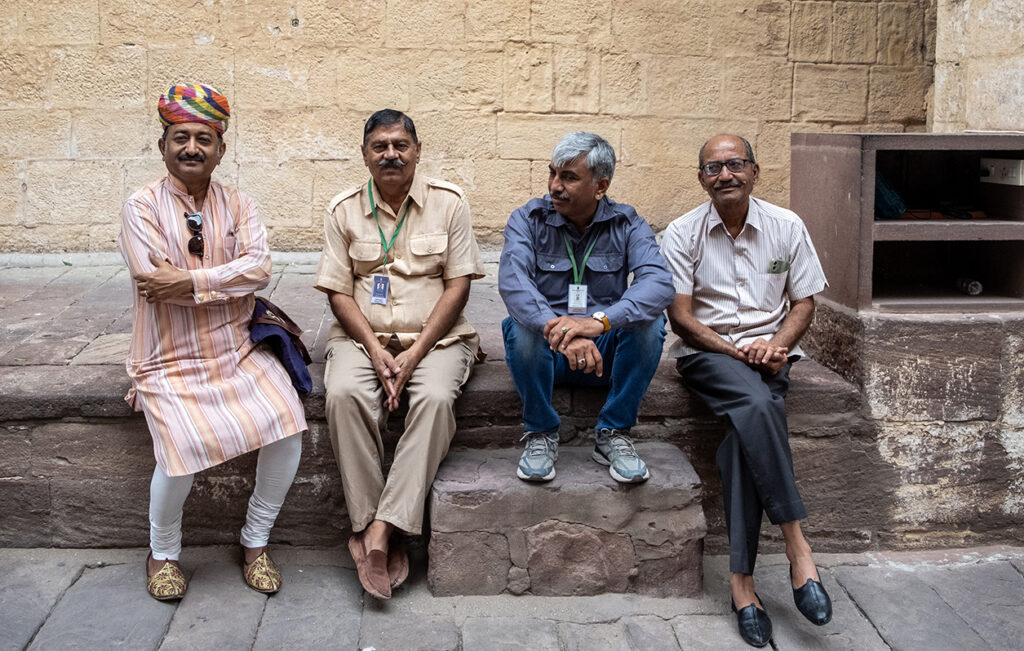
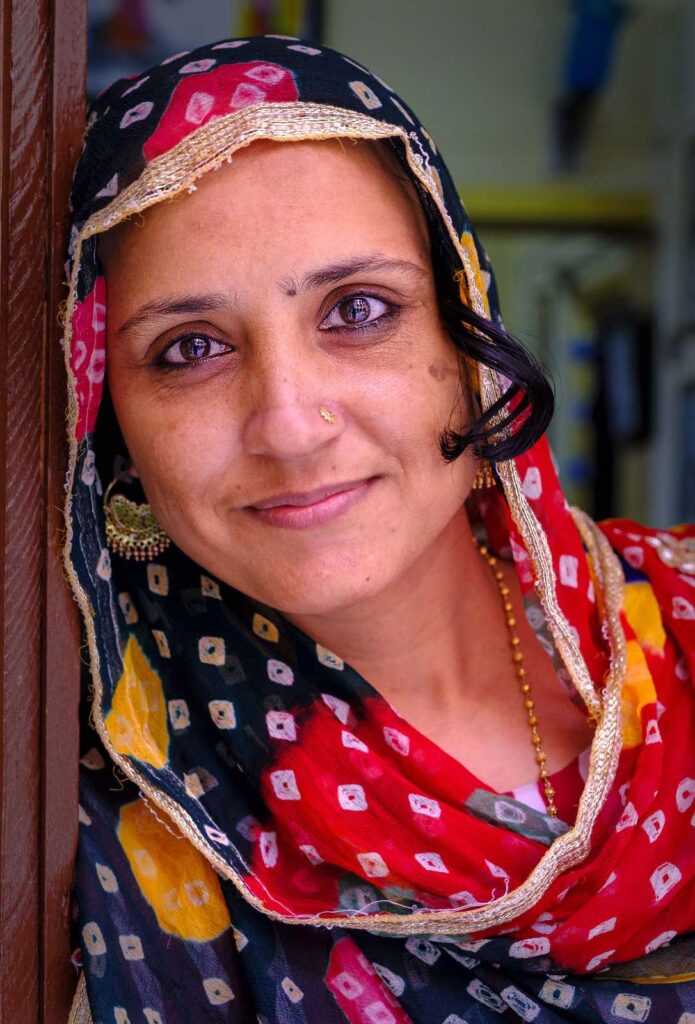
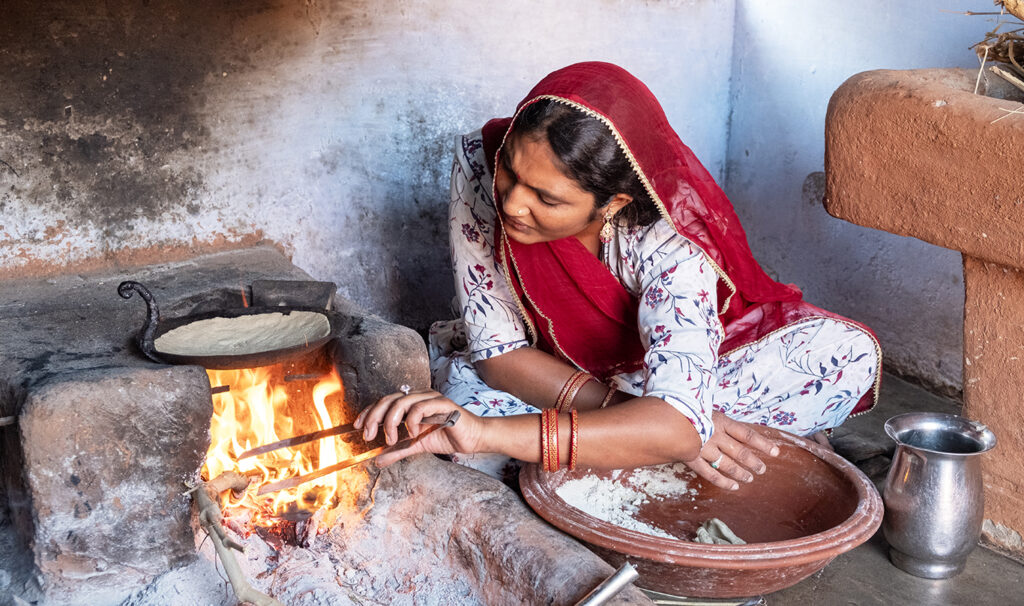
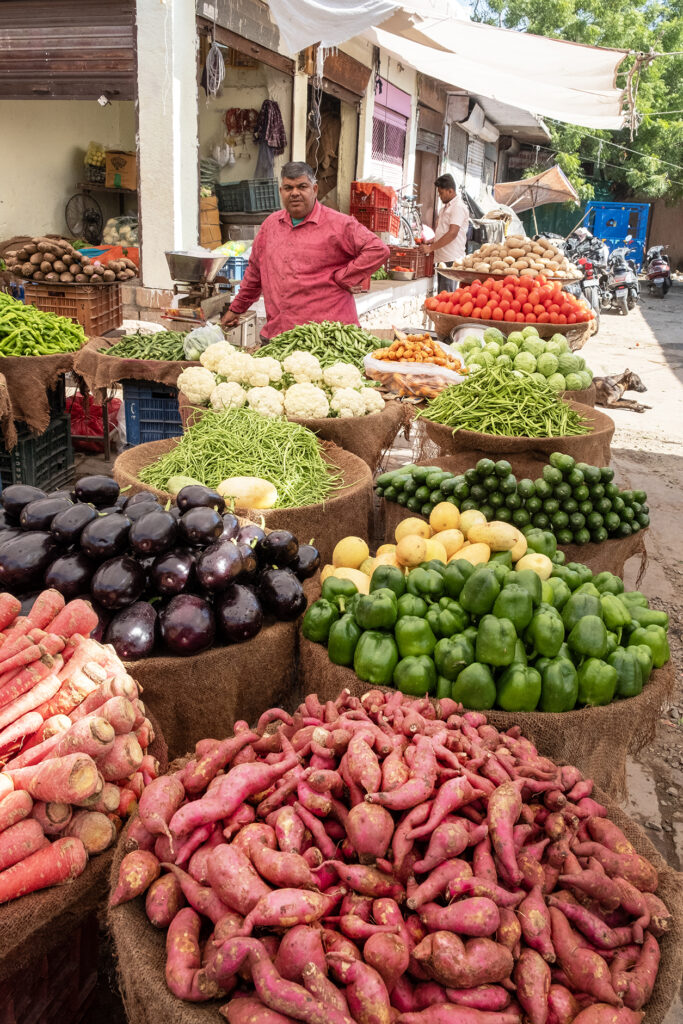
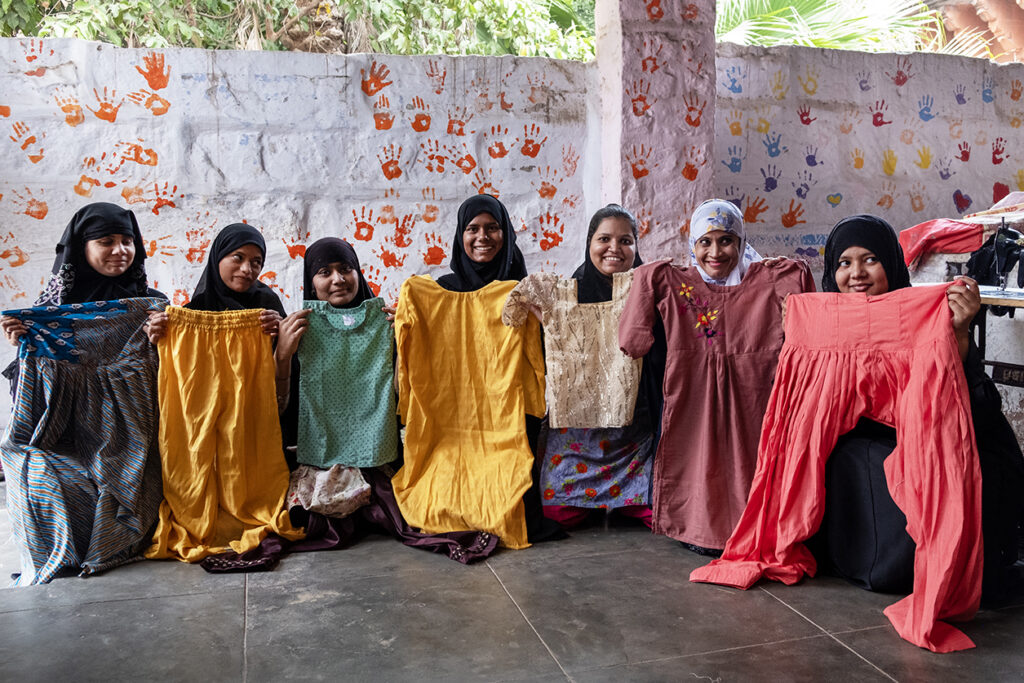
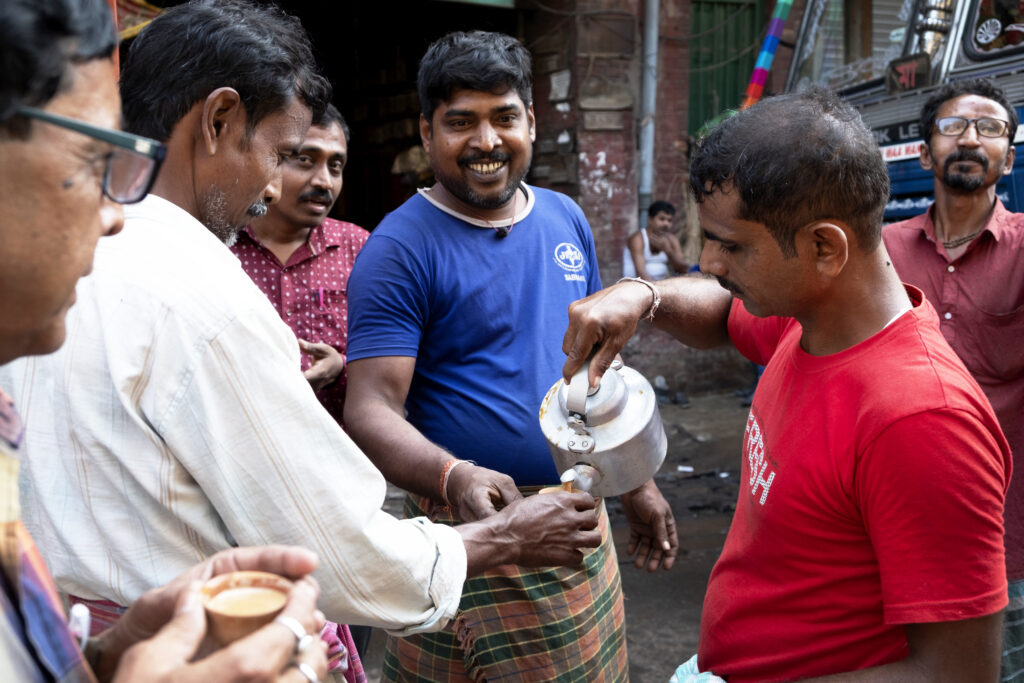
India, a part of you now runs through my veins. What did you teach me? You are a land of every possible contrast and contradiction – a clash of colour and a discord of sounds and smells. You are affluent and poverty-stricken; you made me laugh and weep; you are educated but illiterate; you are cultured, steeped in history. You are rude and wretched but friendly, warm and pleasant. You are filthy, but also, you are spotless. You are unique, and I cannot wait to return.
This piece was published by Bradt Travel club.
More information
You can find out more about the Sambhali Trust and the work that it does here:
